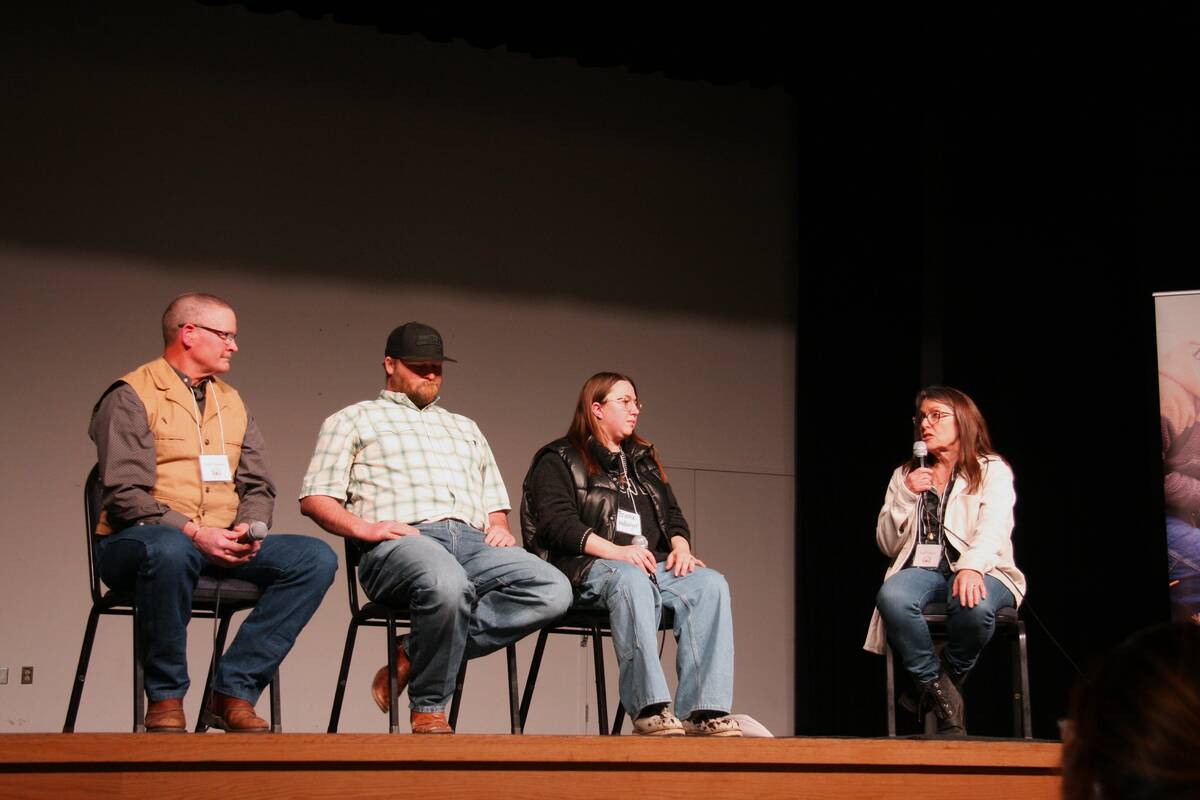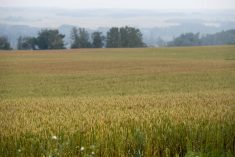Glacier FarmMedia – The conversation surrounding farm succession has opened up in recent years with various strategies being shared.
At last month’s Holistic Management Conference in Assiniboia, Sask., Duane Thompson and Brooke and Ross Walburger shared their experiences with farm transitions and some advice they have on the process during a panel discussion.
Thompson knows both sides of succession. He took over the farm from his father and will be passing it down to his own children in the coming years.
Read Also

New program aims to support plant-based exports to Asia
Understanding the preferences of consumers in Taiwan and how they differ from Indonesia or Malaysia isn’t easy for a small company in Saskatchewan.
The Walburgers are on the receiving end of succession, having taken over Ross’s family farm.
However, they’ve all faced challenges with their experiences.
Thompson said he and his father nearly came to physical blows while trying to figure out how the transition would happen — his father with a shovel and he with his fists. He called it the worst day of his life.
“Thankfully, I have a brother that is a good communicator, and he has a real heartfelt feeling for the farm and ranch that he grew up on,” Thompson said.
“And he said, ‘OK, you guys, let’s get together and figure out how we’re going to make this work.’ So we did, and we came up with a solution and it worked when we worked together.”
For Walburger, there was no discussion. He just had to take over.
“We never had any succession planning at all on my place,” he said.
“So when Dad got sick, we just came home and conquered it.”
His dad’s health problems made it difficult for him to recall and share how to do things on the farm. It became sink or swim, and Ross had to rely on neighbours, community and his prior knowledge. With no plan in place, it left Ross with a lot of decisions and not a lot of guidance when it came to making those choices.
Both Thompson and the Walburgers have decided they will be doing it differently than their parents. Thompson is already undergoing the process, while the Walburgers are only thinking about what they want to do.
Thompson’s strategy has been constant involvement of the kids.
From a young age, the children have taken part in family meetings to discuss the vision for the farm and what Thompson and his wife, Paula, wanted succession to look like. Their goal was to build the farm into a business operation, which they now run as a joint venture, and to ensure their kids could come back if they so choose.
However, they made sure that everything was clear in terms of their views. Thompson said equal, fair and equitable are three different things, and nobody is entitled to anything — it has to be earned.
“To me, equal is, you divide her up, and maybe it’s not viable for anybody. And fair is only every individual’s crazy notion,” he said.
“But equitable, when your mom has taken care of the house, and I’ve built this business that hopefully, if any of you choose to, can come back to this business, has to continue to take care of us as well. So it’s going to take care of us. It’s going to provide a great quality of life for the people who want to be in it. And then we’ll come up with something to help out the non-farming children.”
They also created a five-year rule for each child, which stipulated that upon high school graduation, they had to leave the farm for five years to travel, work off the farm, get an education, pay their own bills and learn about life. If they chose to come back, they were put on a two year “probation.”
“They didn’t just come in as a partner in the joint venture…. They came in, and they were an employee,” he said.
“There were deductions and they got a flat wage per month.”
It was a way for the kids to decide if farming was really for them and if they wanted to take over one day. Throughout this period, Thompson continued to have conversations with his kids.
The Walburgers have two young boys and have begun to involve them with the farm as much as they can, while keeping it age appropriate.
Brooke shared an example of the kids helping to pull posts when rotating the cows and teaching them plant identification. This was a piece of advice Brooke says is key to showing them the how and why of things on the farm.
She also encouraged parents to have a bit of leeway with their kids who are close to taking over by letting them try some of their ideas, even if they are different from the parents.
“I think that’s really important when they’re the ones who are looking forward to the future, and from a soil health aspect, it’s not dollars right now, ” she said.
“It’s how is this land going to serve my next generation.”
The Walburgers’ other step in taking over an operation, as well as preparing for the future, is taking in knowledge together. They watch the same YouTube videos, listen to the same podcasts and attend the same conferences to ensure they each have the same information so that when it comes to making decisions, they’re equally informed.
As they think forward to their future and how they may hand things down to their children one day, Ross said, “we’ve got lots of work to do; we’re not behind, our kids are young, (but) this is tough.”
Kelly Sidoryk, an holistic management educator and farm planner, was the panel moderator and reminded the audience of a few things when it comes to succession. One is that nothing is set in stone — everything can be adjusted as time goes on. However, make sure it’s written down somewhere.
She also encouraged separate transition documents and wills, noting that while they may overlap, they’re not the same.
Another area of consideration is the different roles and responsibilities of those in the family and the farm.
Everything big and small needs to be considered in succession, such as whether everyone will share jobs equally and whether everyone will all live on the same farm yard.
It’s also important for everyone involved to identify what’s important to them and for the “senior” operators to share their vision for the farm. There must be clarity on all ends of the deal.


















